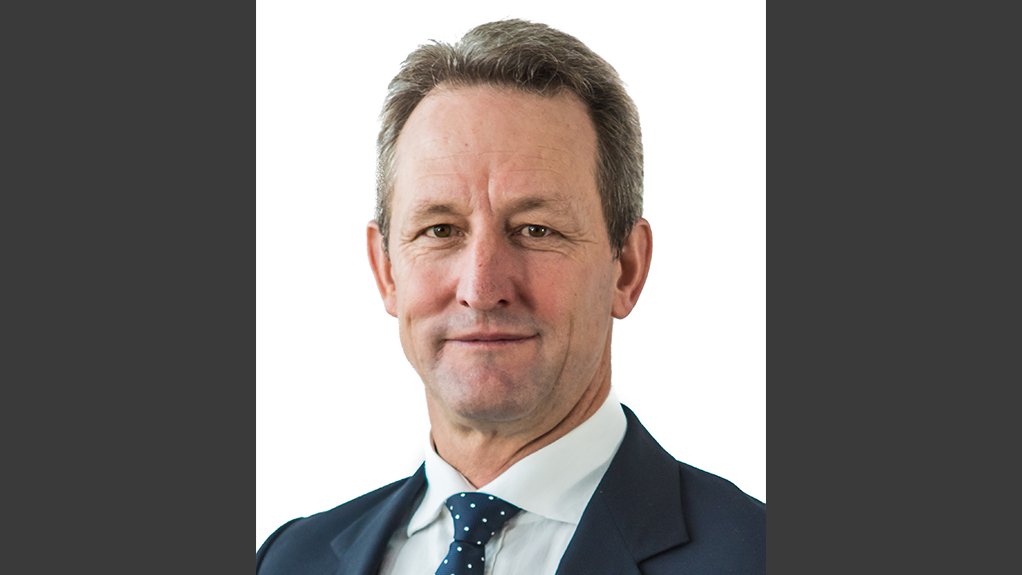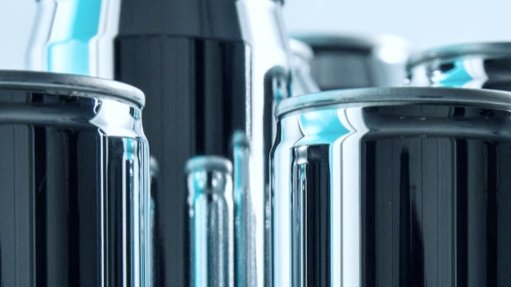Mpact grows revenue, operating profit, expects benefits from investments in 2024
JSE-listed paper and plastics packaging business and recycler Mpact recorded a 3.6% year-on-year increase in revenue to R12.8-billion for the financial year ended December 31, 2023.
Its underlying operating profit also increased to R1.21-billion, from R1.16-billion in the 2022 financial year. The operating profit increase was primarily as a result of a recovery in margins, and some of its recently completed projects, despite sales volumes decreasing by 10.7%.
"We benefitted from a recovery in margins since the end of 2022. There was a tight cost squeeze during 2022, and the margin recovery since the beginning of the [2023] year contributed to earnings before interest, taxes, depreciation, and amortisation (Ebitda) being almost 6% up, which translated to cash," Mpact CEO Bruce Strong told Engineering News.
The group achieved record cash generated from operations of R2-billion, up from R1-billion in 2022.
Further, the group reduced working capital by R100-million, which further buoyed its cash position, in spite of it making R1.54-billion of capital investments, he added.
"Net debt increased to R2.67-billion, up from R2.33-billion in the 2022 financial year, with strong cash generation from operations and well managed working capital partly offsetting the outflows, in line with the group's strategy."
Gearing was 32.9% after investing R1.54-billion during the year in capital projects, reflecting stringent management of working capital and record cash generated from operations, he said.
"The substantial recent capital investments made to increase efficiency, enhance operational resilience and output, and improve quality are expected to contribute positively to future profitability in both the paper and plastics businesses," said Strong.
Mpact also expects a significant improvement in the bins and crates business this year, which is expected to be partly offset by lower sales in preforms and closures.
"We have made a big investment in our bins and crates business, based in Gauteng and which makes returnable transit packaging, and we expect to show a big improvement on the back of our capital investments. We are confident that this investment will comfortably meet our financial return objectives in the future."
The bins and crates Castleview expansion project was accelerated by the acquisition of several second-hand injection moulding machines and moulds during the year. Five of the machines were installed at Castleview, bringing the total number to 13 at year-end compared to nine originally planned for this stage of the project.
Returnable transit crates and bins, which are made from plastic, have seen increased use to package fruit for export, especially avocado pears, owing to improved ventilation compared to paper-based packaging.
The packaging was fully recyclable and was recycled in the export country or sometimes reused. This gave these crates and bins a lower carbon footprint than paper-based packaging, he said.
Further, the company is investing R1.2-billion in its Mkhondo paper mill, and this and its upgrade of Gqeberha Paper Converting factory are on track to meet the targeted financial returns.
The upgrade at Mkhondo paper mill was progressing well. While the project remained on schedule, higher inflation and a weaker exchange rate were putting pressure on the budget. The financial returns were nevertheless still expected to meet the original plan as some of the new products would be exported and priced in US dollars, he said.
"Some of our projects will only be completed in 2025, but several projects were completed by the end of the year, and we will see the benefits come through this year," Strong said.
Meanwhile, Mpact expects the current year to be difficult for its South African consumer-focused businesses, as the economy remains weak and is not expected to improve soon. There will be pressure on demand and margins of its South African consumer-focused products.
"Lower demand will lead to pressure on selling prices and a cost squeeze. We expect a difficult period, specifically in the first half of the year," he stated.
However, this may be partially offset by its fruit-producing customers, who are more optimistic owing to improved weather compared to a year ago and their investments in previous years starting to have a notable positive impact.
Fruit-producing customers' packaging demand would, however, depend on their ability to get produce through the ports and shipped timeously, and port constraints remained a concern for most sectors of the economy, Strong noted.
Further, Mpact added another 6.7 MW of solar photovoltaic (PV) capacity, bringing its total solar capacity to approximately 16 MW. It was comfortable that it would reach its target of 25 MW by 2027, he noted.
The company's paper mills and most of its converting operations had demand curtailment agreements with State-owned Eskom and its solar generation capacity and process designs allowed it to meet most of the requirements up to Stage 5 loadshedding, he said.
"Additional generators were also installed at multiple sites during the year, and our generator-readiness programme was implemented throughout the business. Many of our key sites now have both solar PV and generators to enhance resilience."
Mpact has also changed some of its process designs to create what it terms pulp batteries. This involves its mills that produce pulp being used to produce pulp when they can use solar PV energy at a lower cost than grid power. These machines were then switched off and the paper machines were run during the night, Strong highlighted.
"Process design has a role to play in reducing energy use," he added.
Article Enquiry
Email Article
Save Article
Feedback
To advertise email advertising@creamermedia.co.za or click here
Press Office
Announcements
What's On
Subscribe to improve your user experience...
Option 1 (equivalent of R125 a month):
Receive a weekly copy of Creamer Media's Engineering News & Mining Weekly magazine
(print copy for those in South Africa and e-magazine for those outside of South Africa)
Receive daily email newsletters
Access to full search results
Access archive of magazine back copies
Access to Projects in Progress
Access to ONE Research Report of your choice in PDF format
Option 2 (equivalent of R375 a month):
All benefits from Option 1
PLUS
Access to Creamer Media's Research Channel Africa for ALL Research Reports, in PDF format, on various industrial and mining sectors
including Electricity; Water; Energy Transition; Hydrogen; Roads, Rail and Ports; Coal; Gold; Platinum; Battery Metals; etc.
Already a subscriber?
Forgotten your password?
Receive weekly copy of Creamer Media's Engineering News & Mining Weekly magazine (print copy for those in South Africa and e-magazine for those outside of South Africa)
➕
Recieve daily email newsletters
➕
Access to full search results
➕
Access archive of magazine back copies
➕
Access to Projects in Progress
➕
Access to ONE Research Report of your choice in PDF format
RESEARCH CHANNEL AFRICA
R4500 (equivalent of R375 a month)
SUBSCRIBEAll benefits from Option 1
➕
Access to Creamer Media's Research Channel Africa for ALL Research Reports on various industrial and mining sectors, in PDF format, including on:
Electricity
➕
Water
➕
Energy Transition
➕
Hydrogen
➕
Roads, Rail and Ports
➕
Coal
➕
Gold
➕
Platinum
➕
Battery Metals
➕
etc.
Receive all benefits from Option 1 or Option 2 delivered to numerous people at your company
➕
Multiple User names and Passwords for simultaneous log-ins
➕
Intranet integration access to all in your organisation




















